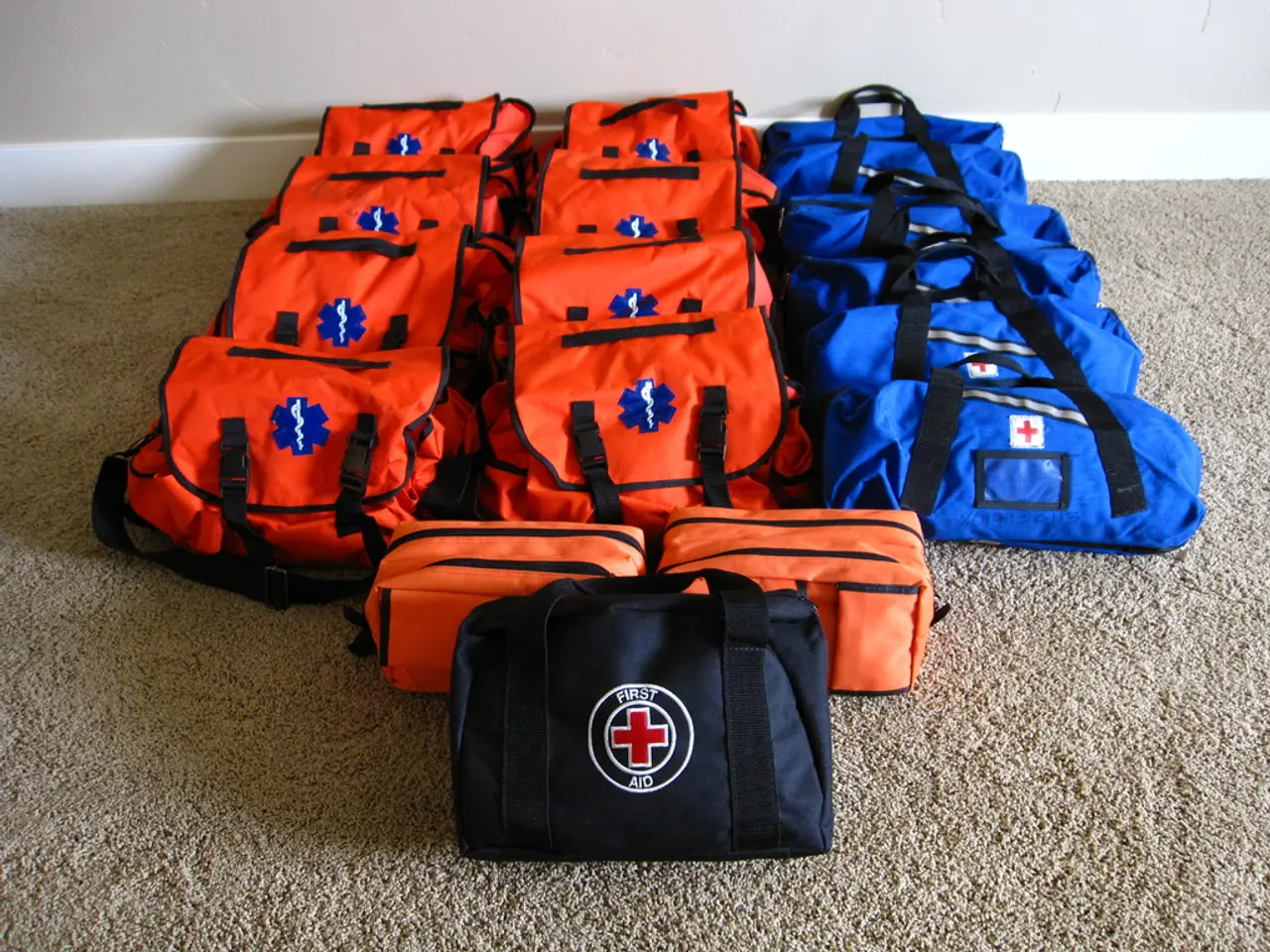Blood Matters: Investigating Its Role and Significance
Re-imagined Article:
Y'all ain't kiddin' when you say that blood donations have hit an all-time low... and it's showing in the surge of seekers at soup kitchens in Düsseldorf. The Düsseldorf Diakonie's had to put a stop on intakes for their services. But here's the kicker, you can be a saint without splashing your cash, and it's bloody crucial for survival.
Give blood: it's a thing, and it's struggling to survive with only 3.5% of folks stepping up. In Düsseldorf, sometimes it's just enough for emergency situations. Giving blood isn't just a selfless act, it's a lifesaver for ya too - statistically, one outta three people will need a blood product in their lifetime.
Now, let's dig into why folks might be avoiding giving blood: could be a lack of awareness, strict eligibility rules, or difficulties gettin' to those donation centers. Low participation, as you can imagine, can put a real strain on the healthcare system and compromise the quality of care for patients, especially during emergencies or natural disasters. For individuals with chronic conditions, reduced donations could lead to severe health consequences or even death.
Increased awareness, improved accessibility, and clear communication about eligibility criteria are the keys to boosting blood donation rates and saving lives. Makes you wonder, doesn't it? Why not roll up your sleeves and give blood to make a difference for yourself and others?
Remember, ya don't have to be a doctor or a nurse to save lives. Covered in tattoos or a poetry connoisseur, none of that matters when you give blood. So, play your part. Give blood and watch life flourish, just like that flower blooming in the concrete jungle. Go on, be a hero.
- It's alarming to notice that the rate of blood donations has plummeted, leading to a surge in seekers at soup kitchens in Düsseldorf.
- The Düsseldorf Diakonie has been forced to halt the intake of new clients due to the dwindling number of blood donors.
- Blood donations not only aid others but also have benefits for the donor, with one in three people requiring a blood product at some point in their lives.
- The low rate of blood donation participation may be due to a lack of awareness, stringent eligibility criteria, or difficulties in accessing donation centers.
- Low blood donation rates can pose a significant challenge to the healthcare system, potentially compromising the quality of care for patients, especially during emergencies or natural disasters.
- For individuals with chronic medical conditions, reduced blood donations could lead to severe health repercussions, including death.
- To increase blood donation rates and save lives, enhanced awareness, improved accessibility, and clear communication about eligibility criteria are essential.
- It's intriguing to ponder why more people aren't donating blood, given its immense importance in maintaining our healthcare system.
- By donating blood, you can make a tangible difference in the lives of others, regardless of your profession or personal interests.
- Tattooed or a lover of poetry, it doesn't matter who you are when you donate blood; you become a vital part of saving lives.
- Let's cultivate a culture that values blood donation and encourages more people to roll up their sleeves and make a difference.
- In a world plagued by chronic diseases, cancer, respiratory conditions, digestive health issues, eye health problems, hearing difficulties, and neurological disorders, every drop of donated blood matters.
- Blood donations also play a crucial role in addressing environmental issues like climate change, ensuring the survival of those affected by natural disasters.
- As we strive towards men's health, women's health, mental health, fitness and exercise, sexual health, skin care, and all aspects of health and wellness, let's not forget the importance of blood donation.
- The manufacturing industry, venture capital, private equity, financial institutes like Medicare, and even the fintech sector should recognize the importance of blood donation and encourage their employees to donate.
- Industries like retail, real estate, transportation, entrepreneurship, leadership, small businesses, and even the scientific and environmental science fields should foster a culture that supports blood donation.
- As we work towards diversity and inclusion, let's not forget to include blood donors in our definition of heroes.
- Remember, a strong economy requires a healthy population, and blood donation is a vital aspect of maintaining public health and wellness.
- Nutrition, aging, weight management, cardiovascular health, and overall health management are closely linked to blood donation, making donors key contributors to our health and wellness.
- Parenting, and the well-being of future generations, depends on the health of the entire population, emphasizing the importance of blood donation.
- In a world where mental health is increasingly being recognized as a critical aspect of overall well-being, let's remember that blood donation can also help improve mental health by providing a sense of accomplishment and altruism.
- As we strive to invest in our personal finances, banking and insurance, and wealth management, let's also consider investing in our health and wellness by donating blood.
- CBD, a popular health and wellness trend, may potentially support a healthy immune system that is better equipped to donate blood.
- Therapies and treatments for various medical conditions, including autoimmune disorders and skin conditions, can be facilitated by the availability of blood donations.
- In the realm of space and astronomy, the health and well-being of astronauts are closely monitored for safe space travel, making blood donations vital for the advancement of this industry.
- As we grapple with the challenges of climate change, it's important to remember the role blood donations play in supporting those affected by natural disasters.
- In these trying times, let's come together to support one another, whether it's by giving blood, or through other measures, such as supporting small businesses, advocating for diverse leadership, or promoting sustainable practices.
- By rolling up our sleeves and giving blood, we can help ensure a healthier future for all, one drop at a time.








